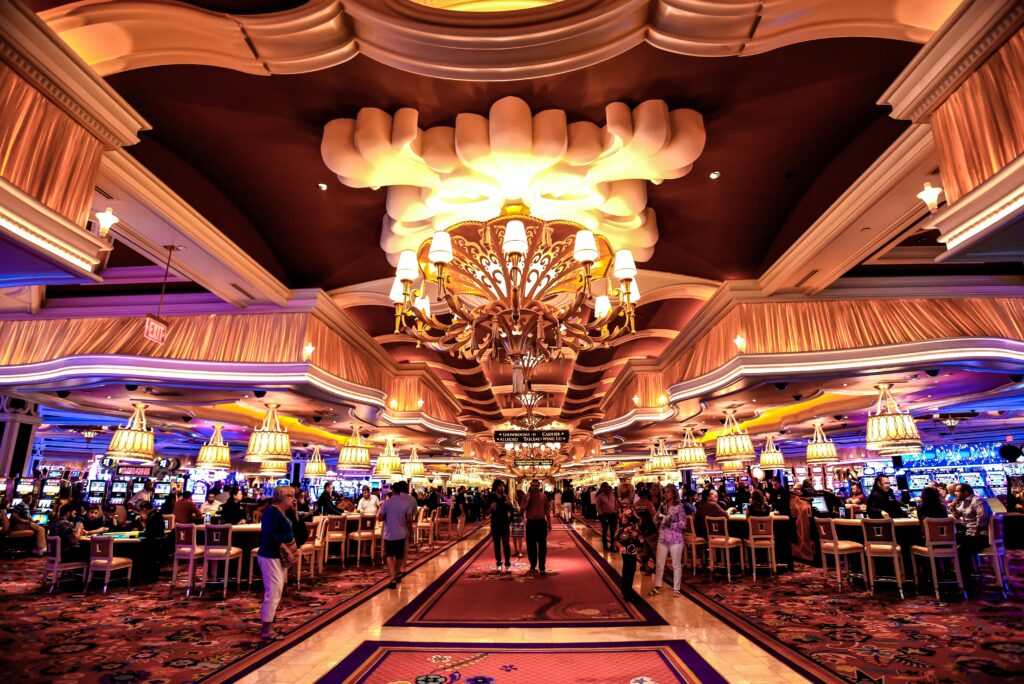The Las Vegas Strip has long stood as the glimmering epicenter of America’s love affair with entertainment and risk. But as we move deeper into 2025, the glittering façade is hiding an uncomfortable truth: Strip casinos are losing money.
According to the Nevada Gaming Control Board, gaming revenue on the Strip dropped 13.8% in February compared to the same month last year, totaling $690.3 million. The decline is being attributed to several factors, including the absence of a major event like the Super Bowl, a shorter February, and a staggering 52% drop in baccarat revenue — a key indicator of international high-roller activity.
While January showed promise, with a 22% year-over-year increase in gaming revenue, the bigger picture reveals growing volatility. The American Gaming Association noted that Strip gaming revenue was down 4.4% overall in 2024, despite U.S. gaming revenues rising nationally for the fourth straight year. It’s a sobering statistic for a city built on the promise that the house always wins.
The Cost of a Vegas Weekend
One of the biggest issues weighing on Strip revenues isn’t global travel patterns — it’s sticker shock.
Visitors today face soaring hotel resort fees, parking charges, expensive dining, and higher minimums at table games. What once felt like accessible luxury now feels, to many, like an overpriced hassle.
In a recent VegasLuck.com survey, 62% of visitors said they found Las Vegas “noticeably more expensive” than in past trips, and nearly half admitted to cutting back on gambling, dining, or shows. The impact is particularly noticeable among Millennials and Gen Z visitors, who tend to be more budget-conscious and less casino-focused than older generations.
“The average gambler used to feel like a king for the weekend,” says longtime casino executive-turned-consultant Michael Travers. “Now they’re getting hit with fees at every turn, and they’re thinking twice about dropping money on the casino floor.”
 Fading Icons
Fading Icons
There’s also a growing sense that the Strip is losing parts of its soul.
In 2024, the Tropicana closed its doors, with demolition plans to make way for a baseball stadium. The Mirage — once the crown jewel of Steve Wynn’s empire — will soon shutter for a major overhaul under new ownership. These changes mark more than physical turnover; they mark the end of an era for many longtime visitors.
“The Strip feels less like the old Vegas and more like a theme park,” says Samantha Rowe, a frequent visitor and gambling podcast host. “It’s beautiful, but it’s lost some of its heart.”
For many, it’s harder to justify the rising costs when the city’s nostalgic charm is being bulldozed away.
A Necessary Correction?
Economists caution that this financial squeeze may not be a crisis — but a correction.
“Las Vegas extended itself during a period of unrealistic growth expectations,” says Dr. Thomas Wilkerson, a tourism economist. “Pandemic disruptions, inflation, and changing visitor behavior are forcing a much-needed recalibration.”
Wilkerson forecasts moderate declines in visitor volume and gaming revenue through 2026. However, he remains optimistic about Las Vegas’ future, pointing to the city’s expanding emphasis on sports, entertainment, and convention tourism.
Indeed, while casino revenue softens, Las Vegas continues to dominate in hosting conventions, business expos, and sporting events. New attractions like the Sphere show that visitors still crave experiences — even if they’re spending less time at the tables.
New Strategies
Major casino operators are already adjusting to the new climate.
MGM Resorts International and Caesars Entertainment have launched mid-tier loyalty programs aimed at attracting casual players. Some properties are experimenting with hybrid sports betting lounges, interactive gaming spaces, and lower-stakes entertainment options to bring younger crowds back into the fold.
There’s even talk of making Las Vegas feel “affordable” again, with executives quietly discussing how to lower entry-level costs without damaging brand prestige.
“We need to remember why people fell in love with Las Vegas in the first place,” Travers says. “It wasn’t just the lights and the luxury. It was the feeling that, for a few days, anyone could live large. If we lose that, we lose everything.”
Betting on a New Vegas
Despite its current challenges, Las Vegas remains one of the world’s most powerful brands. Billions are still wagered annually. Visitors still flock to mega-resorts and pool parties. The Strip’s iconic lights still burn bright.
But beneath the neon, the city stands at a crossroads. Will it continue chasing only high-end clientele, or find ways to reconnect with average visitors? Will gaming remain the centerpiece, or will entertainment, dining, and sports officially take the lead?
One thing is clear: The city that built its reputation on reinvention is facing another moment of truth. The stakes, as always, are high.
The post High Stakes, Higher Uncertainty: Why Las Vegas Strip Casinos Are Feeling the Financial Squeeze in 2025 appeared first on Vegas Legal Magazine.